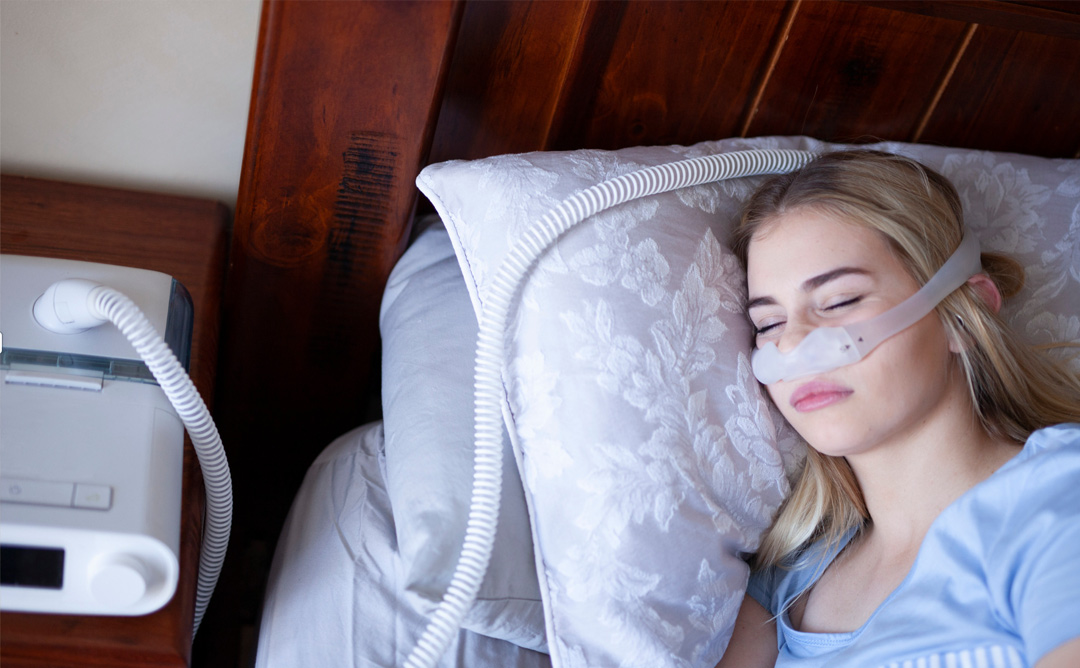
Sleep Apnea and Dental Health

The Silent Connection: How Dental Problems Cause Sleep Apnea
Sleep apnea is a sleep disorder characterized by interrupted breathing during sleep, leading to multiple awakenings and reduced oxygen intake. While various factors contribute to sleep apnea, dental problems have emerged as a surprising yet significant influence. In this blog, we will explore the lesser-known connection between dental issues and sleep apnea, shedding light on how maintaining good oral health can positively impact our quality of sleep and overall well-being.
Understanding Sleep Apnea:
Before diving into the dental aspect, it’s essential to grasp the fundamentals of sleep apnea. There are three main types of sleep apnea:
• Obstructive Sleep Apnea (OSA): The most common type, OSA occurs when the muscles at the back of the throat fail to keep the airway open, causing obstruction during sleep.
• Central Sleep Apnea (CSA): In CSA, the brain fails to transmit proper signals to the muscles responsible for controlling breathing.
• Mixed Sleep Apnea: As the name suggests, this type is a combination of both obstructive and central sleep apnea.
How Dental Problems Contribute to Sleep Apnea:
While OSA is most commonly associated with dental issues, it’s important to recognize how specific oral health problems can lead to or worsen sleep apnea:
• Malocclusion: A misaligned bite or malocclusion can cause the jaw to be in an unnatural position during sleep, potentially obstructing the airway.
• Overcrowded Teeth: Overcrowding in the mouth can contribute to a narrower airway, increasing the risk of breathing difficulties during sleep.
• Temporomandibular Joint Disorder (TMJ): TMJ issues can lead to jaw pain and limited jaw movement, impacting the positioning of the airway and increasing the likelihood of sleep apnea.
• Bruxism: Teeth grinding or clenching, known as bruxism, can strain the jaw muscles and contribute to the development of OSA.
• Tongue and Throat Muscle Weakness: Poor oral health can lead to weakened tongue and throat muscles, making it more challenging to maintain an open airway during sleep.
• Gum Disease: Chronic inflammation caused by gum disease may contribute to the narrowing of the airway, potentially aggravating sleep apnea.
Addressing Dental Problems for Better Sleep:
The relationship between dental problems and sleep apnea indicates that improving oral health can positively impact sleep quality and overall well-being:
• Regular Dental Check-ups: Regular visits to the dentist can help identify and address dental issues before they contribute to sleep apnea.
• Orthodontic Treatment: Correcting malocclusion and overcrowding through orthodontic treatments can improve the alignment of the jaw and airway.
• Treating TMJ Issues: Addressing TMJ problems can alleviate jaw pain and improve the positioning of the airway during sleep.
• Nightguards: Dentists may recommend nightguards to protect the teeth from bruxism, reducing strain on the jaw muscles.
• Managing Gum Disease: Maintaining healthy gums can help prevent chronic inflammation that may exacerbate sleep apnea symptoms.
The link between dental problems and sleep apnea highlights the importance of comprehensive oral health care. By addressing dental issues and maintaining good oral hygiene, individuals can potentially reduce their risk of sleep apnea and enjoy better sleep quality.
If you suspect that dental problems may be contributing to your sleep apnea, consult your dentist or a sleep specialist to explore suitable treatment options. Remember, a healthy smile not only brightens your day but can also lead to more restful nights.
My favorite oral hygiene products:
Disclaimer: We are an affiliate of many companies, which means that we may receive a commission if you click on our affiliate link and make a purchase. However, this does not affect our reviews and comparisons. We strive to provide honest opinions and recommendations based on our own experiences and research. Any product claim, statistic, quote, or other representation about a product or service should be verified with the manufacturer, provider, or party in question.
